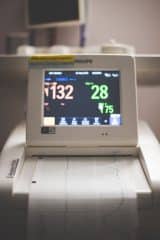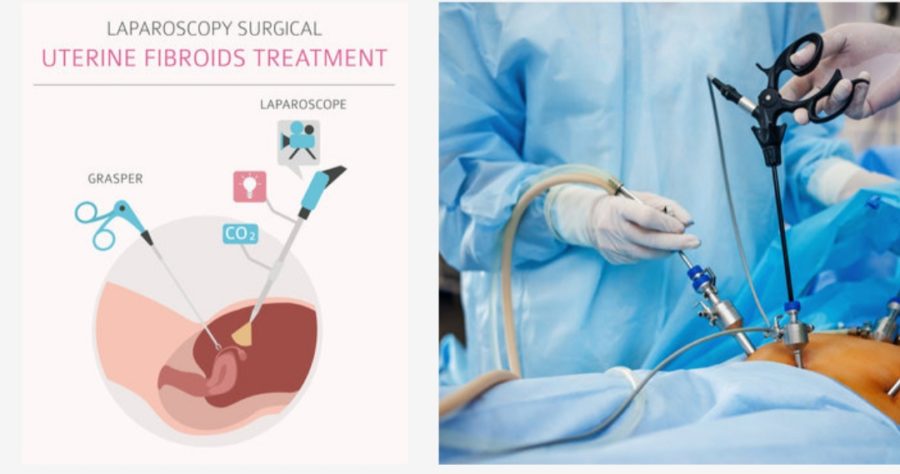Quick Facts About Amniocentesis
| A | B |
|---|---|
| Description | Prenatal diagnostic procedure that involves withdrawing a small amount of amniotic fluid from the uterus to examine it for genetic or chromosomal abnormalities in the baby |
| Purpose | Primarily used to screen for chromosomal abnormalities such as Down syndrome, Trisomy 18, and Trisomy 13, as well as genetic conditions like cystic fibrosis, neural tube defect and sickle cell anemia |
| Timing | Typically performed between 15 and 20 weeks of pregnancy |
| Procedure | Under ultrasound guidance, a thin needle is inserted through the mother's abdomen and into the amniotic sac to withdraw a small sample of amniotic fluid. The fluid is then sent to a laboratory for analysis |
| Duration of Procedure | Typically takes about 15-30 minutes |
| Risk | Small risk of miscarriage, leakage of amniotic fluid, bleeding from the puncture site, infection, or injury to the fetus |
| Candidate | Recommended for women who are at increased risk of having a baby with a genetic condition or abnormality. This includes women who are; 35 years of age or older at the time of pregnancy, have a family history of a genetic disorder, have had a previous pregnancy with a genetic disorder, have had an abnormal ultrasound result |
| Benefits | Provide valuable information about the health of the baby and help parents make informed decisions about their pregnancy. If the test results indicate a genetic disorder or abnormality, parents can choose to have further testing or consider termination of the pregnancy |
| Side Effects | Some women may experience mild cramping or discomfort for a few days |
| Result | The results of amniocentesis are usually available within 1-3 weeks |
| Alternative Test | Non-invasive prenatal testing (NIPT) is an alternative with lower risk |
| Cost | The cost for amniocentesis can vary based on where the procedure is done. It typically ranges from; • 1,000 USD and 7,200 USD • 200,000 NGN - 400,000 NGN • 910.59 EUR - 6556.28 EUR • 788.66 GBP - 5678.35 GBP • 7082.80 CNY - 50996.16 CNY |
Amniocentesis cost in Nigeria is one of the reasons for its low patronage in Nigeria. In fact, the concept of DNA testing is only common in words and not in practice in this country. However, there are people and medical institutions that offer amniocentesis services in Nigeria.
Amniocentesis is a medical procedure that tests for genetic disorders and infections in fetuses when the mother is between 15 and 20 weeks of pregnancy. It is done by testing the genetic information in discarded cells, present in the amniotic fluid of the amniotic sac. It is usually done to prepare for the possibility of having children with birth defects, such as cystic fibrosis or neural tube defects.
In this article, we will talk about the cost of getting amniocentesis done in Nigeria. However, before we get there, we will discuss the reasons for doing the amniocentesis, the risks involved in amniocentesis, and the procedures involved in performing it.
What is Amniocentesis?
It is now common to prevent many genetic disorders that used to be discovered after a child is born before they are born. In some cases, fetuses that have the possibility of developing genetic disorders get tested early in the pregnancy to determine if they can be safely delivered and their condition, managed. This test is done through Amniocentesis.

Amniocentesis is a medical procedure that uses amniotic fluid, collected with a needle, to determine the health status of a fetus, without any damage to the mother or child. It is a relatively safe procedure that has garnered some negativity among people in Nigeria, mostly because of ignorance.
It is a prenatal diagnostic procedure that is done between the 15th and 20th week of pregnancy to see if a fetus has a genetic defect, metabolic disorder, or possible birth defect, depending on the family history. It is also used to test for infection in the fetus, for prompt treatment.
Amniocentesis results are usually ready a couple of hours from sample collection to about 14 days of sample collection. The earlier results usually tell of lung health, while later results need cells to regrow before testing.
Who needs Amniocentesis?
Amniocentesis is a procedure that caters to the health investigation of fetuses and their parents. It helps to determine if their expected child will need special care, and if they are capable of giving it the care and attention it needs during and after pregnancy.
Usually, both parents can be determinants of whether their child needs to be tested through amniocentesis, depending on their individual family history. However, the mother is usually considered a higher determinant.
Amniocentesis is needed if:
- The mother is 35 years and above.
- There is a family history of genetic or metabolic disorder from either parent, or there is a previous child with either condition.
- There is a risk of neural birth defects, such as spina bifida.
- There is a cause for concern during maternal screening tests
- There is a need to check for lung maturity and infections.
Risks involved in Amniocentesis
One of the scariest risks during pregnancy is miscarriage. Another is infection. These two are some of the risks attached to amniocentesis. Although the possibility of occurrence is low, it is still possible. For instance, miscarriage as a result of amniocentesis has a 1% chance of occurrence. Other risks attached to amniocentesis include:
- Preterm labor
- Leaking amniotic fluid or blood through the puncture site or vagina
- Cramping
How is Amniocentesis Done?
Amniocentesis begins by preparing the mother for the procedure. Usually, there are no special preparations required; however, you may need to inform your doctor of the medications, prescribed and over-the-counter, that you are currently using, as they may contain compounds that interfere with blood clotting. Your health history will also be important information for your doctor.

In some cases, you may be required to empty your bladder before the procedure. This mostly happens if the pregnancy is in its later stage. In the early stage of pregnancy, a full bladder helps to elevate the uterus, an advantage for the amniocentesis procedure.
During the procedure, you may have to fully undress and wear a hospital gown. While you lay on your back, with your hands behind your head, your doctor will take records of your breathing rate, blood pressure, and heart rate. After this comes the checking of the position your child, the placenta, and the umbilical cord, are in. the doctor will also check the fetus’ heart rate. Afterward, he or she will clean your abdomen with an antiseptic. You shouldn’t touch your abdomen area after this.
The doctor will apply an anesthetic to your abdomen, probably by injecting it. This may cause a little discomfort but it will help to numb your skin. After this, with the aid of an ultrasound, a long needle will be guided into your uterus through your stomach to retrieve some amniotic fluid into a syringe. You may feel some cramping when the needle comes in contact with your uterus.
The needle is withdrawn after the fluid has been gotten and the piercing point treated and bandaged. The amniotic fluid will be transferred into a special container and taken to the lab for testing.
After the procedure, the fetus’ vital signs and the mother’s will be taken and monitored for about an hour. If the mother has a negative Rhesus, she will be given the appropriate medication to prevent Rhesus attack on the fetus’, if it has a positive Rhesus.
Amniocentesis Cost in Nigeria
Amniocentesis, although not popular, is available in many government hospitals in Nigeria. In whatever part of the country you may be, there are several public hospitals where you can get this procedure done. Also, there are private fertility clinics that perform this procedure.
The common difference between the public and private medical institutions that perform amniocentesis is the cost. Amniocentesis cost in Nigeria is not outrageous, considering its importance and what it can help you avoid or prepare for. The price range for amniocentesis in private clinics is between #300, 000 and #400, 000. In public hospitals, you can get amniocentesis done for about #200, 000.
Where to do Amniocentesis?
You can get amniocentesis done in any government hospital in Nigeria. If they do not have the wherewithal to do it, they will refer you to another hospital that will. In Lagos, private medical facilities, such as Nordica, Bridge Clinic, Trucare, and High Rocks Fetal Medicine and Diagnostic Center, are good places to have an amniocentesis. Lagos University Teaching Hospital, LUTH, is also a good government-owned center for the procedure.
Conclusion
Amniocentesis is a medical procedure that helps to check for potential genetic and metabolic disorders in fetuses by testing the amniotic fluid for information about these. It is a fairly safe procedure that is done in the second trimester of pregnancy.
The cost of amniocentesis in Nigeria is between #200, 000 and #400, 000, depending on your location and the type of institution you prefer.



